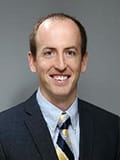About the Health Services Administrative Fellowship — UPMC Susquehanna
The two-year administrative fellowship provides exposure to all aspects of hospital and physician practice operations and management. It's ideal for those who wish to pursue a career in health administration.
UPMC Susquehanna is an affiliate of UPMC and a northcentral Pennsylvania based health system. UPMC Susquehanna joined the UPMC Family in 2016. Comprised of seven hospitals and a total of 317 licensed acute and 258 long-term beds, the system provides a wide array of services. The hospitals that form the foundation of UPMC Susquehanna are very much a part of the area's rich history, and have a long-standing tradition of providing care to generations of families in northcentral Pennsylvania.
Serving patients from a total of 12 counties, UPMC Susquehanna is continually growing, and serves as the north central Pennsylvania hub for UPMC. Most recently, the system acquired Lock Haven and Sunbury Hospitals, as well as a recent merger with Charles Cole Memorial Hospital.
Supplemental learning opportunities
The following training and development courses will be offered to provide exposure to key areas of human resource management:
- Journey to Management
- New Manager Training - Physician Services
- Communicating for Leadership Success
- Strategic Performance Management
- Fraud: Define, Deter, Detect
- Generations in the Workplace
- Addressing Poor Performance
- Resolving Workplace Conflict
- Crucial Conversations
Learn more about UPMC Susquehanna.
Year One Opportunities
The UPMC Susquehanna administrative fellow will primarily spend the first year of the program rotating through the Health Services Division at UPMC Susquehanna and shadow the hospital’s executive team, gaining observational and practical experience within operations and administration.
Throughout the first year, the fellow will complete formalized rotations with an assigned executive mentor per rotation. Rotations will primarily involve shadowing key executive and management teams, with supplemental project work as appropriate. Rotations will focus in each of the following areas:
- Hospital Operations
- Imaging
- Finance
- Nursing
- Information Technology
- Facilities
- Construction & Design
- EVS
- Surgical Services
- Human Resources
- Physician Recruiting/Relations
- Susquehanna Health Medical Group
- 1-Week Externship
- Other opportunities approved by Fellowship Directors based on interests
Project examples
Examples of projects, roles, etc. that fellows may experience include:
- Conducting process and workflow improvement studies
- Coordinating various task forces
- Serving a variety of analytical roles
- Establishing new clinics
- Managing consultants or other third-party vendors
- Assisting with the implementation quality-of-care improvement initiatives
- Assisting with the integration of clinical departments across campuses
- Assisting with the development of strategic plans
- Exposure to financial analyses
- Exposure to contraction negotiations with physicians and consulting firms
- Championing various projects with senior leadership
Externship examples
Examples of first year externships include:
- UPMC Hamot
- UPMC Presbyterian Shadyside
- UPMC Pinnacle
- UPMC Altoona
- UPMC Enterprises
- The UPMC Health Plan Pittsburgh Office
Year Two Opportunities
The second year of the fellowship allows more flexibility in satisfying career objectives with an emphasis on gaining direct associate management experience.
Based on the organization’s needs, fellows may have opportunities in the following:
- Extended or additional rotations
- Planning and marketing
- Physician practice management
- Service line management
- Information systems
- Health information management
- Human resources
- Project work as assigned by the chief executive officer, chief operations officer, or other members of senior management
- Department management
Preceptors
Roles and expectations
The fellow is also assigned a preceptor during each rotation. Preceptors are responsible for guidance and progress by:
- Defining projects
- Ensuring that the fellow's needs are being met
- Meeting with the fellow regularly
- Providing timely feedback regarding performance and progress
Fellows are responsible for providing their advisors and preceptors with all necessary information to ensure a mutually beneficial experience.
Fellows must also attend the following meetings:
- Rotation preceptor meetings (weekly)
- Executive management meetings (bi-weekly)
- Management team meetings (monthly)
- Committee meetings (monthly)
- Board meetings (quarterly)
Current preceptors
- Bob Kane – Chief Operating Executive, Divine Providence Hospital, VP of Ancillary Support
- Steve Johnson – President, UPMC Susquehanna
- Jan Fisher – Chief Operating Executive, Williamsport Regional Medical Center, Chief Operating Officer UPMC Susquehanna
- Eric Pohjala – Chief Financial Officer
- Patricia Jackson – Vice President, Marketing Development & Communications
- Tim Schoener – Chief Information Officer
- Lori Beucler – Vice President & Chief Nursing Officer
- Melissa Davis – Vice President, Medical Group Operations
- Dr. Daniel Glunk – Vice President & Chief Quality Officer
Current Fellow

Alex Johnson, MHA
Second Year Fellow
University of Minnesota
johnsona20@upmc.edu

















